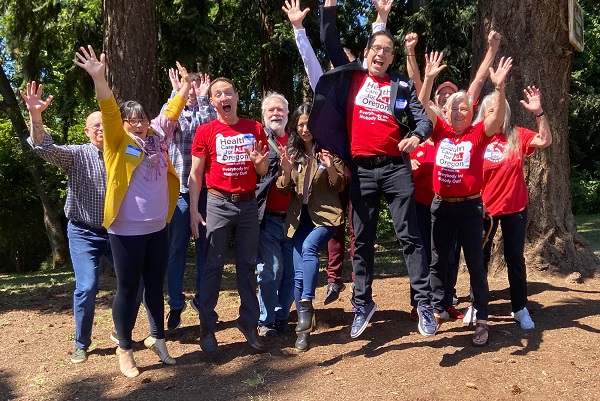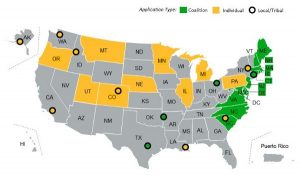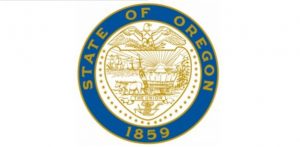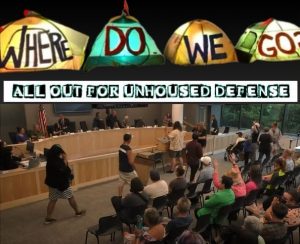Help shape health care for all in Oregon
8 min read
DJ Suss D: Health Care for All Oregon is a statewide nonprofit with over 40,000 members and supporters. For over 20 years, HCAO has been working for an equitable, affordable, high-quality, comprehensive, publicly funded universal health care system. They hold educational seminars and lobby legislators on how single-payer health care would improve the lives of individual families and communities across Oregon and the United States.
[00:00:28] According to Executive Director Maribeth Healey and local chair Lou Sinniger, single-payer health care would be much like a co-op, like Costco, where users pool their money together to keep costs down. The 2023 legislature passed SB1089, creating the Universal Health Plan Governance Board, which will create and administer the plan.
[00:00:53] Maribeth Healey (Health Care for All Oregon): You know, back in the day, I was like, ‘South Africa is going to have a universal health care system before America,’ and sure enough, they do, right? Because it’s much more efficient, it’s much more humane, and that goes to the ballot measure, right? It is a human right, which means that everybody should be able to access the health care they need when they need it.
[00:01:15] Lou Sinniger (Health Care for All Oregon): We suffered the COVID pandemic, right? And every country in the world dealt with it one way or the other. We didn’t deal with it very well, but nonetheless, the people mostly affected, or worst affected, were Black and brown people, right? And other places, you know, in Europe and what-not, they were effective, but not based on color. Not based on color.
[00:01:44] I mean, you’ve got to ask yourself: Why is it that when Black women giving birth have more traumatic effects, lose their child, or die in the process than white women in the United States? So this is a form of discrimination that if we had publicly-funded health care, would go a long ways to ending that.
[00:02:09] Maribeth Healey: It’s insurance companies, you know, and bean counters making the decision. And then we have this preponderance coming on of these private equity firms, trying to buy our health care system and buy our doctor’s clinics. Again, putting more money people between me as the patient and my doctor or my nurse practitioner or my physician assistant, whoever my primary care provider is.
[00:02:40] And that is wrong because that’s where the health outcomes piece comes in. If you’re not, if your doctor isn’t making decisions about your care, then you’re not going to get the best care that you can. Why is health care being treated as a commodity? It’s not a widget, it’s not a washing machine, it’s not General Electric, right?
[00:03:02] I just think that that is, again, a backwards way that we look at our health care system in this country. You know, it should be that for patients and providers are the people that should be making the decisions about medical care, not an insurance company or a private equity firm.
[00:03:22] Lou Sinniger: I was raised on a farm, so I’m kind of simple in a lot of ways.
[00:03:27] Insurance companies make a bet. I mean, this is the general thing. They make a bet that when you get fire insurance for your home, that you’ll pay more money in before your home ever burns down. Plus, like any insurance company, they have use of your money then to invest it, right?
[00:03:47] But when it comes to health care, you and I know that everybody in our country and in the world is going to need health care. So that’s a pretty bad bet. So they have to shave every nickel they can because, in the end, everybody needs health care. So what are they operating off of? The use of our money to make a profit.
[00:04:15] Maribeth Healey: Average family premiums in the state are $20,000 a year. On average, an Oregon employee or worker pays about 30% towards that premium.
[00:04:27] So what is that? You know, $6,000 a year right there, plus copays, deductibles and other out of pocket costs. So we’re already paying for it. We already spend the money. We just don’t spend it in the most efficient manner. And we don’t spend it where it needs to be spent, which is actually giving patients the care that they need, and providers, quite frankly, a system that they can operate in.
[00:04:55] DJ Suss D: They feel Eugene’s hospital closure would have never happened under public health care.
[00:05:00] Lou Sinniger: It’s not just those companies involved with the stock exchange. There are also companies like PeaceHealth and Pacific Source that are nonprofit. But the system that they’re in forces them to always come up with a profit.
[00:05:21] And that’s how PeaceHealth got bigger. That’s how Pacific Source got bigger. It’s that even though they don’t have shares, they save their money to buy and acquire other insurance companies or other clinics and whatnot. So, it’s not all shareholders that are doing this. It’s the system of selling health care for a profit.
[00:05:49] As you know, UnitedHealth care bought out Oregon Medical Group and is now trying to buy out the Corvallis group. However, I want you to pay attention to this, that St. Charles, which is over in Bend, and the Samaritan hospital, which is in Corvallis, gave notice to UnitedHealth care that they would no longer accept their insurance anymore.
[00:06:17] Why? Because they were telling their doctors and the hospital how to treat the patients, which was causing a nightmare in the organization. Plus, they were not paying on time. And so, you know, it’s just absolutely ridiculous that here we are, Samaritan Hospital in Corvallis didn’t want UnitedHealthcare, and yet it’s UnitedHealthcare now that is going to try to buy all the clinics in Corvallis,
[00:06:52] It’s again, medical decisions being based on the profitability or non-profitability of the company. And that’s exactly what PeaceHealth did for the University District Hospital. They said, ‘Gee, we’re losing $2 million a month, so we’re going to close it.’ Of course they were losing money because a lot of the homeless go there to that hospital and don’t pay a dime. So of course they were losing money.
[00:07:24] But we need a hospital. Now we’re the second largest city in the state of Oregon and we don’t have a hospital. Can you imagine? If we had a publicly provided system, that wouldn’t have happened. It would have been analyzed and money redirected, right?
[00:07:46] But what they did, I mean, even Governor Kotek asked them, wrote PeaceHealth: ‘Would you delay your decision for eight months so that we can talk to everybody involved and come up with a plan?’ Their response was, ‘If you hold us up on this, we’re going to close it sooner.’
[00:08:10] Now, is that the Sacred Heart that I was raised with? I don’t think so.
[00:08:18] DJ Suss D: There are a lot of opportunities for public involvement at this critical time.
[00:08:22] Maribeth Healey: We are at a very, very, very exciting time in Oregon, and while, you know, the Universal Health Plan Governance Board has just been announced, right, they will start their work, I’m sure, after they’re confirmed by the Senate next month. But we as Oregonians, we have the opportunity to make our voice heard on these mergers and acquisitions that are happening.
[00:08:47] Go om to the HCAO website at hcao.org, find all the information there on how to make your voice heard and be immediate with some of these crises that we’re going through right now. And then also as we build for that bigger system, we are, you know, we’re on a strong drive to educate Oregonians. So if you’ve got a group or belong to a church or a chamber or a union or a civic group, invite us to come and speak.
[00:09:17] We want to educate folks. We want to answer questions to the best of our ability, but we want people to understand that this is coming and that they have an opportunity to shape what our new, improved and simplified health care system looks like. So it’s a great opportunity. Go to HCAO.org for more info.
[00:09:37] So there’s still an opportunity for folks to have their voice there on that merger with a California company that could get, you know, $1 billion of Oregonians’ tax money, right now. That’s our money. It’s going to stay here for care, here, not going to California, for crying out loud. And then of course this Optum thing. And then we have the legislative session. The short session starts on Feb. 5, goes through March 12.
[00:10:05] There’s a lot happening there. Again, you know, the Eugene delegation I know is for—the Lane County delegation is working on some stopgap measures for this intermediate around this hospital district closing. There’s PBM (Pharmacy Benefit Managers) legislation. There’s this corporate practice of medicine law which is going to attempt to kind of, stymie, I guess, the health equity folks from purchasing, making sure that, you know, health care facilities or doctor’s offices that they’re owned by a provider that providers are making these decisions and again, not bean counters.
[00:10:41] You know, there’s workforce bills. There’s a lot happening in the health care sphere. So if you’re concerned about the dysfunctional system and you want to help improve it, please join us in our battle to create a universal publicly-funded system in Oregon.
[00:10:56] Lou Sinniger: Also, you know, we have a meeting first Tuesday of every month at the First United Methodist Church at 7:00 in the evening. You can join us in person or Zoom in. And what we’re interested in is creating house parties, showing movies, and we’re creating resolutions to place before Lane County and also the city of Eugene to support this movement and support universal care.
[00:11:23] And not only that, but several of the unions in the area, AFSCME unions and SEIU unions, all support this endeavor. And so if you’re involved in a union, bring it up, bring up universal care, bring up Health Care for All Oregon and we’ll present where we’re at, and we also have speakers available for any group, any church, any faith organization. We’ll be there.
[00:11:53] So anyway, first Tuesday of every month, 7:00 p.m., First United Methodist Church. Thank you.
[00:11:59] Maribeth Healey: At HCAO, we know where we’re going from here. We’re going to build an equitable, universal health care system that is publicly funded and publicly accountable, where every Oregonian is in and no Oregonian is out.
[00:12:14] DJ Suss D: For KPEW News, I’m DJ Suss D.






